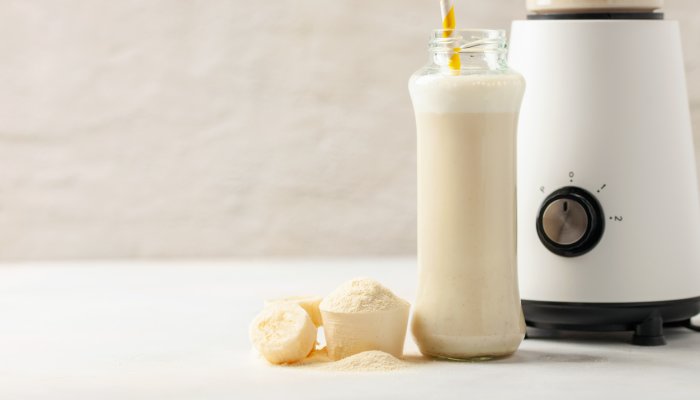Uh, Is Colostrum The New Collagen? Experts Weigh In

“Colostrum is the initial milk produced by the mammary glands of mammals when they give birth,” explains board-certified dermatologist Hadley King, M.D. “It’s rich in nutrients, antibodies, antioxidants that help to nourish the baby and help build the baby’s immune system. It changes to regular breast milk after two to three days.” So it’s not regular breast milk—it’s supercharged breast milk.
The colostrum powders you see lining the supplement aisle typically come from cows (aka, bovine colostrum), and they’re brimming with vitamins, minerals, digestive enzymes, antibodies and other immune system proteins, growth hormones, fats, and carbohydrates, King shares. When you ingest those nutrients, they can theoretically help support your immune system and gut health.
“Researchers have found that bovine colostrum supports immune function5 and intestinal health6 and can help prevent upper respiratory illnesses,” adds celebrity chef, nutritionist, and reiki master Serena Poon, C.N., CHC, CHN. “Colostrum is also great for your skin6!”
Let’s dive into those skin-related benefits, shall we? First thing’s first: Colostrum and collagen are not frenemies—they actually work synergistically. “Colostrum helps stimulate collagen production7,” notes Poon.
As we discussed up top, “Collagen is a protein that your body creates naturally that gives your skin elasticity,” she adds. “Natural production of this protein decreases with age, so people are often looking for ways to support this process.”
And thanks to those growth factors and immunoproteins, colostrum may help with fibroblast activation, wound healing, and tissue repair, says King—all of which happen to be top notch benefits for healthy skin aging. “[Colostrum] has even been shown to repair damaged skin8,” says Poon.